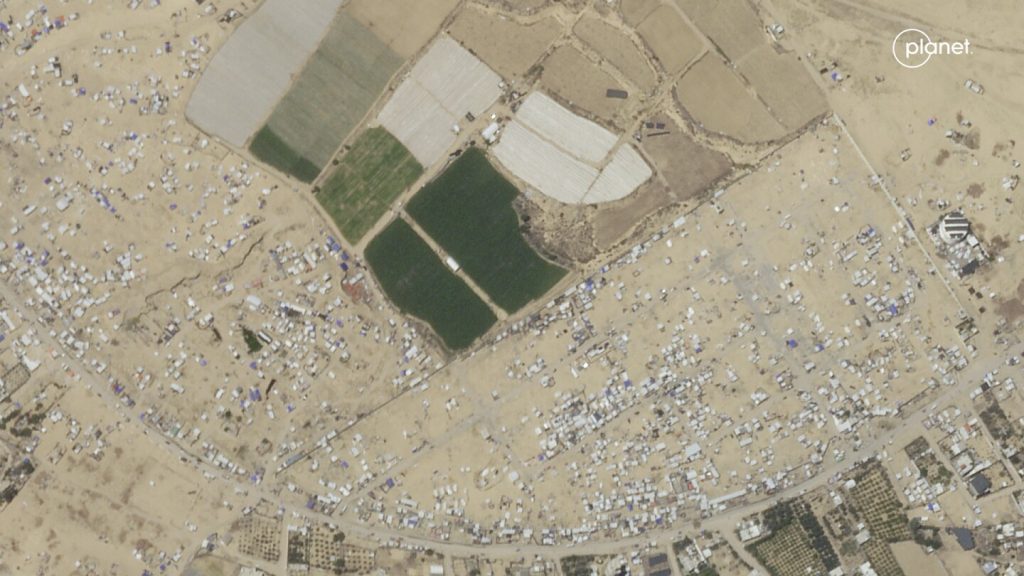Newly-released satellite photos reviewed by the Associated Press show a significant exodus of Palestinians from Rafah, the southernmost city in Gaza, in anticipation of a feared Israeli ground invasion. The photos, taken three days apart, reveal a dramatic change in the landscape after Israel issued evacuation orders. Crowded tent camps in central and northwest regions of Rafah quickly became sparse as Palestinians packed up and left the area, leaving behind sandy patches where tents once stood. This mass displacement has raised global alarm, as the city was home to 1.3 million Palestinians, many of whom were already displaced from other parts of Gaza.
As the Palestinians evacuate Rafah, it is unclear where they are headed. Rights groups have expressed concerns about the lack of resources in Gaza to accommodate the newly displaced masses, including food, water, and shelter. The area where Israel has directed Palestinians is reported to be a squalid makeshift tent camp that is already crowded. Israel’s military reported that 900,000 Palestinians had left Rafah, a figure supported by UNRWA’s count of 800,000. The situation has highlighted the urgent need for international intervention to prevent a full-blown invasion of the city by Israel, as the mass displacement of Palestinians continues.
While Israel has described its operations in Rafah as limited in scope, human rights organizations like Human Rights Watch have criticized the displacement of hundreds of thousands of Palestinians from their homes as evidence of a different reality on the ground. The director of UNRWA’s operations in Gaza, Scott Anderson, has expressed concerns about the escalating crisis and the lack of safe havens for displaced Palestinians. The ongoing war, which began after an attack by Hamas that killed Israelis, has resulted in significant casualties and displacement in Gaza. Ceasefire talks have stalled, with international mediators struggling to broker a deal between Israel and Hamas amid heightened tensions in the region.
Israel’s military has indicated that the war is likely to continue for another six months, further prolonging the suffering of civilians caught in the conflict. The lack of progress in ceasefire negotiations has left many Palestinians vulnerable and in need of humanitarian assistance. The displacement of Palestinians from Rafah has underscored the urgent need for a diplomatic resolution to the crisis, with international pressure mounting on Israel to halt its offensive. As the situation in Gaza continues to deteriorate, the plight of civilians, including women and children, remains a top concern for humanitarian organizations and global leaders.


